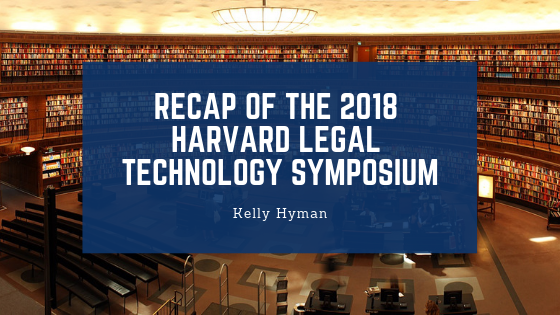The 2018 Harvard Legal Technology Symposium was held on November 5-9th. 2018. The event harbored innovators across the legal spectrum to meet for a discussion on technology, and how it impacts the law industry and the current practice of law. The event was hosted by the Harvard Association of Law and Business, in partnership with the Center on the Legal Profession, the Library Innovation Lab, the Journal of Law and Technology, the Harvard Law Entrepreneurship Project, and the Harvard Law and Technology Society.
This year’s Symposium began with “Technology in Law Firms”, a discussion centered around the most popular technology being used today, presented by the Journal of Law and Technology. Also included during day one of the Symposium was “The Next Generation Lawyer”, a discussion on technology’s impact on other industries in the world, and how lawyers must adapt to understand how this change will impact law, and how some aspects will ultimately remain the same.
The second day of the Symposium began with “Using AI and Data in Contracts”. This discussion was led by two Harvard Law School 3Ls who began a startup company, Evisort. Their company uses AI to solve document management and data issues for legal contracts. “Technology in Legal Departments” also included discussions on Evisort, and its ability to bring value to legal departments with pre-populated contracts.
The Symposium concluded with “Natural Language Processing Technology and Law”, which was led by the Harvard Law and Technology Society. Panelists discussed the impact legal tech has had on their own practices, and how tech generated contracts have the ability to be more flexible and unleash more productivity around the office with the freedom these technologies provide.
Legal tech is expected to continue to grow, making it all the more necessary for lawyers and their practices to welcome the changes and adapt where needed. As lawyers, it’s important to remember these developing technologies only work to help support lawyers, and allow their businesses to run more smoothly, further citing the need to welcome them with open arms.
